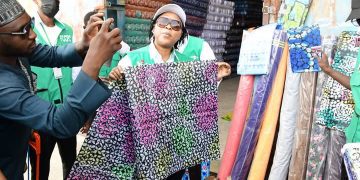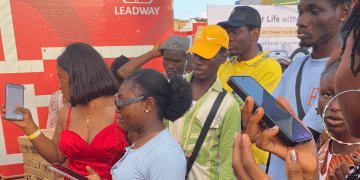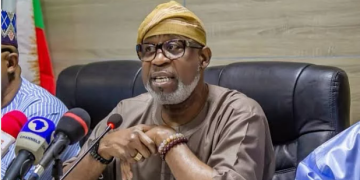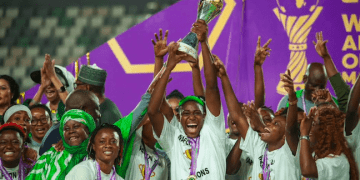Beyond the glittering cities, Nigeria needs $100 billion annually over the next 30 years to bridge its infrastructure gap, according to the African Development Bank. Roads, energy, railways, ports, and broadband coverage—many of which are lacking in smaller towns and northern regions—are the backbone of national productivity
By Deji Nehan
A New Kind of Homecoming
every December, the airports in Lagos, Abuja, and Port Harcourt buzz with life. The Nigerian diaspora return home in droves to reconnect with family, enjoy the festivities, and spend generously in local communities. As of December 2024, the Central Bank of Nigeria disclosed that diaspora remittances channeled through International Money Transfer Operators totalled $4.22 billion between January and October—almost twice the $2.62 billion recorded in the same period of 2023. Yet, much of this economic spark fizzles out after the holidays, leaving a trail of transient investments and missed long-term opportunities.
It’s time to move from seasonal sentiment to structured impact. The diaspora’s role must shift from being festive spenders to intentional co-developers of a nation in need of rebuilding—particularly in areas like infrastructure, human capital, and regional integration.
The foundation we’ve already laid
Nigerians abroad have already proven their capacity to lead transformation. From the tech boom of Yaba’s startup ecosystem—partly energized by diaspora returnees—to healthcare professionals setting up clinics and diagnostic centers in urban Nigeria, there’s a compelling history of influence.
Consider the impact of initiatives like the Nigerian Healthcare Foundation (NHF) in the United States, which sponsors mobile clinics in rural Nigeria. Or the efforts of Nigeria in Diaspora Organization Europe (NIDOE) in launching vocational training for displaced youth in the North-East. These aren’t dreams—they’re blueprints.
Similarly, real estate development in places like Lekki, Enugu, and Abuja have been largely diaspora-backed. But these have mostly targeted elite enclaves. What if we reimagined that same drive towards more inclusive and strategic investments in underdeveloped zones?
Infrastructure: Beyond the Glittering Cities
Nigeria needs $100 billion annually over the next 30 years to bridge its infrastructure gap, according to the African Development Bank. Roads, energy, railways, ports, and broadband coverage—many of which are lacking in smaller towns and northern regions—are the backbone of national productivity.
With digital technologies and remote collaboration tools, development no longer has to be centralized. This is where borderless development takes root.
Imagine a diaspora-led think tank in Toronto collaborating in real-time with a state government in Nigeria to develop smart agro-processing hubs in Osun. Or an AI startup in London partnering with a university in Maiduguri to digitize learning for internally displaced students.
Take the stalled Lagos-Ibadan Expressway, the long-promised Second Niger Bridge, or the half-completed Ajaokuta Steel Project. These are testaments to how broken infrastructure not only stifles growth but demoralizes citizen confidence.
The diaspora must begin to ask: What role can we play in catalyzing infrastructure equity?
This could take the shape of:
• Diaspora bonds can fund roads, power, and housing. States should partner with the federal government to issue targeted bonds for diaspora investors. A 2025 U.S. bond aims to boost monthly inflows to $1bn.
• Public-Private Partnerships (PPPs) for community roadworks, solar mini-grids, or water treatment plants.
• Tech-backed platforms for monitoring infrastructure projects and ensuring transparency.
For example, diaspora co-funded mini solar grids in Bauchi and Ekiti are already powering schools and health centers, reducing reliance on fragile national power grids.
Human Capital Development: More Than Skill, It’s Strategy
As Nigeria’s median age hovers around 18.1 years, the country’s true wealth is in its people. However, with over 33% youth unemployment, this demographic dividend risks becoming a ticking time bomb.
The diaspora community, enriched with global exposure, can lead the charge in:
Digital training academies in rural and peri-urban areas
Mentorship pipelines connecting Nigerian youth with global professionals
Endowment funds for vocational schools and public universities
Take the example of Tech4Dev, a non-profit co-founded by diaspora Nigerians, which has trained over 10,000 women in digital skills across 15 states. These are models that can be scaled.
We must also move from mere training to strategic capacity development—pairing learning with job access and economic inclusion. Here, borderless collaboration becomes key.
Towards Borderless and Decentralized Development
The old model of concentrating development only in major cities is obsolete. The diaspora must see beyond Lagos and Abuja. States like Ogun, Ebonyi, Niger, and Gombe hold immense untapped potential for agriculture, solid minerals, and light manufacturing.
With digital technologies and remote collaboration tools, development no longer has to be centralized. This is where borderless development takes root.
Imagine a diaspora-led think tank in Toronto collaborating in real-time with a state government in Nigeria to develop smart agro-processing hubs in Osun. Or an AI startup in London partnering with a university in Maiduguri to digitize learning for internally displaced students.
Development now transcends borders, and the diaspora sits at the edge of this transformation.
From Stories to Systems: What Needs to Happen
We’ve seen inspiring micro-projects, but what’s missing is structure.
National Diaspora Investment Platform: A centralized and transparent portal for investment opportunities vetted by local governments.
Diaspora Seats in State Development Boards: Formal inclusion of diaspora reps in economic planning processes.
Incentivized Return Programmes: Partnering with multinationals to offer temporary return fellowships for Nigerian professionals abroad.
Diaspora Innovation Hubs: Co-funded centers for training and prototyping in high-growth industries.
Compelling Call to Action: A Shared Duty
Nation-building is not a government monopoly. It is a collective inheritance. And for the diaspora, it is not merely a moral duty—it is a practical investment in a home that must remain viable for generations.
This is the moment to move from the nostalgia of Detty Decembers to the architecture of lasting impact.
If each Nigerian abroad partners with one local community project, mentors one emerging leader, or invests in one critical infrastructure, we would not just be visitors—we would be vanguards.
The call is not just to come home—but to build it.
•Contributed by Deji Nehan – Diaspora Diary
The vision is to contribute to the development of Nigeria by leveraging the insights and experiences of the diaspora community. We aim to create a platform where knowledge and ideas can be shared freely, fostering a collaborative environment that drives progress and innovation. Our mission is to provide thought-provoking and actionable insights that can help shape policies, guide investments, and ultimately contribute to building a better future for Nigeria.










































